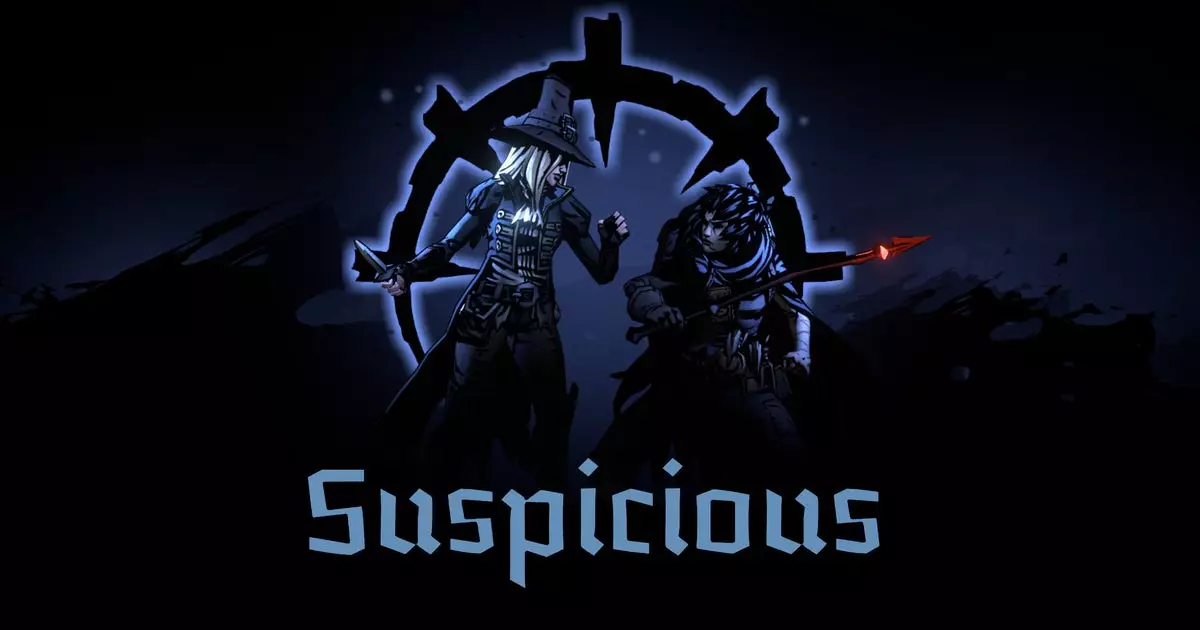In a surprising move in the gaming industry, Behaviour Interactive, known for its popular title Dead By Daylight (DBD), has acquired Red Hook Studios, the innovative creators behind the critically acclaimed Darkest Dungeon. This acquisition comes at a time when Behaviour Interactive had recently laid off staff and canceled projects, raising eyebrows and eliciting mixed reactions from the gaming community. The juxtaposition of financial restructuring against this acquisition highlights a complex reality within game development, blending the struggles of maintaining creativity with the harshness of corporate survival.
Behaviour Interactive’s recent history paints a picture of a company experiencing turmoil. Following a spree of consolidating smaller studios—such as SockMonkey, Codeglue, and Fly Studio—Behaviour’s decision to eliminate jobs and shut down Midwinter Entertainment has cultivated skepticism about their long-term vision. This past turbulence raises questions about the motivations behind acquiring Red Hook. The acquisition appears to juxtapose a desire for expansion against a backdrop of internal struggles. This trend is not uncommon in the gaming industry, where studios often pursue acquisitions to patch over weaknesses, yet it can lead to concerns regarding the stability and future vision of both the acquiring and acquired companies.
A Closer Look at Darkest Dungeon
Darkest Dungeon has built a reputable identity as a horror-themed strategic role-playing game. Its unique blend of challenging gameplay and atmospheric storytelling has garnered it a dedicated fan base. The synergy between DBD and Darkest Dungeon is seemingly curious, as both titles explore horror within their frameworks. However, while Behaviour Interactive presents the acquisition as a visionary move towards a portfolio filled with horror titles, one cannot ignore the underlying implications: what governs the independence of Red Hook, and how will this independence manifest in the development process?
Behaviour has asserted that Red Hook will remain “a fully independent studio” post-acquisition, yet the practical application of this term remains murky. The term “independent” itself leaves much to be defined—does it mean artistic freedom, or only operational autonomy? The acquisition raises critical questions about how Behaviour will balance its corporate strategies and vision with Red Hook’s creative pursuits. The notion of supporting Red Hook through funding and resources must be closely examined against the potential pressures of corporate oversight and expectations. Red Hook co-founder Chris Bourassa’s depiction of Behaviour as “kindred spirits” serves as a comforting narrative but does not alleviate skepticism regarding how this partnership will unfold in practice.
During this transition, Behaviour Interactive has expressed a clear goal of becoming synonymous with the horror genre, and surrounding its flagship title with similar standout games. Their CEO, Rémi Racine, has characterized this acquisition as a significant stepping stone towards that ambition. While the strategic reasoning behind acquiring Red Hook may resonate with business objectives, one must ponder the sustainability of such an approach. Will Behaviour focus solely on acquiring horror games to build this narrative, or will they also foster innovation and creativity within these studios? The immediate future will be critical for determining the viability of this expansion.
The Road Ahead for Red Hook
Despite potential concerns surrounding the acquisition, Red Hook Studio continues to exhibit enthusiasm for the collaboration. They are currently working on a significant expansion for Darkest Dungeon 2, promising to evolve the game into a turn-based strategy board game format. The expanded resources from Behaviour could arguably allow Red Hook to embark on more ambitious projects, although the risk is that their creative vision could be curtailed with external influences and expectations from Behaviour. It’s a delicate balance of maintaining a singular creative identity while navigating the waters of corporate ambitions.
The acquisition of Red Hook Studios by Behaviour Interactive encapsulates a significant moment in the gaming industry, highlighting the intricate dance between creative autonomy and corporate strategy. While Behaviour’s intent may be to foster a robust ecosystem of horror titles, the future will depend heavily on how they define and support Red Hook’s independence. As fans eagerly await new content from both studios, they must also remain vigilant regarding the broader implications of such acquisitions in the gaming landscape. Only time will tell how this partnership evolves, but for now, it stands as a striking reflection of the challenges faced in an ever-competing industry.


Leave a Reply